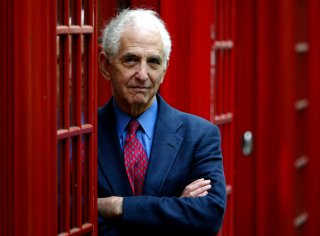How a New President Can Protect Whistleblowers
Although it is the president’s right to remove IGs who are not fulfilling their responsibilities, Trump has removed more IGs than any U.S. president in the past thirty years, and often with dubious motives.
Furthermore, it can be worth clarifying to IGs what the Right and Left limits are of their roles and what their main purpose should be. For example, if they assume that they must adopt an adversarial, “gotcha” disposition to be effective, they’re more likely to pursue investigations that aren’t as useful to the agency that they serve. Likewise, if an IG defers too much to their agency head, they won’t provide effective oversight. To harmonize expectations about what ideal IG relationship looks like, we should develop a shared set of guidelines during the transition period in coordination with the Council on Inspectors General for Integrity and Efficiency (CIGIE)—an independent entity established in 2008 to promote integrity across the Executive branch. These guidelines could map out a range of hypothetical scenarios and suggest potential courses of action to resolve disputes quickly and maintain trust over the long haul. In much the same way that young couples often undergo relationship counseling before marriage, so too do incoming agency heads and IGs need some go-to guidance on how to work with each other and resolve conflict as it arises. CIGIE published a handbook in 2016 to coordinate the presidential transition, but the handbook does little more than explain what an IG is and where it derives its sources of authority. A more thorough playbook would contemplate inevitable sources of tension and how to manage them.
The next administration could promulgate these expectations more formally in a Presidential Policy Directive (PPD)—not unlike how Obama strengthened whistleblower protections for members of the intelligence community through PPD-19, whereby retaliation was expressly prohibited and an external review process created. One potential avenue to ensure understanding of the roles of IGs and compliance with the new guidance might be through the Presidential Management Council (PMC). Comprised of the chief operating officers of major Federal agencies (most often the deputy secretary), the PMC oversees a variety of government-wide operational and reform initiatives.
The next administration will inherit a massive inbox full of enormous challenges. To help ensure that the American taxpayers’ hard-earned dollars are deployed cost-effectively and that disasters are avoided, we will depend on Federal employees to speak truth to power. These public servants on the front lines need to know that when they work to improve our lives, we will have their backs.
Elizabeth Sherwood-Randall is Distinguished Professor at the Georgia Institute of Technology's Nunn School of International Affairs and Senior Fellow at the Harvard Kennedy School's Belfer Center for Science and International Affairs. She served as deputy secretary of the Department of Energy under President Barack Obama.
Hilary Hurd recently graduated from Harvard Law School. Prior to law school, she served as the U.S. Defense Lead for Transparency International and studied in the UK as a Marshall Scholar.

